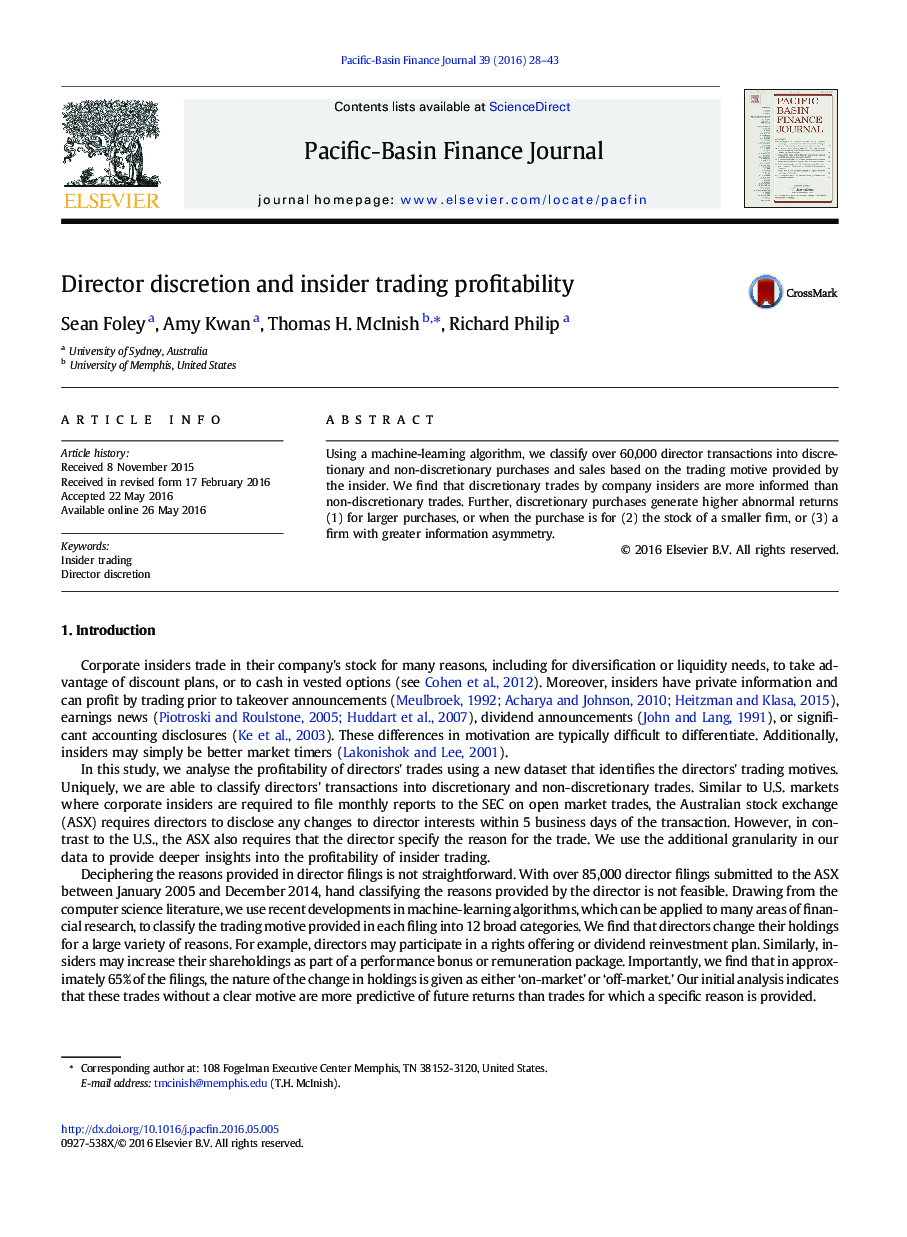| Article ID | Journal | Published Year | Pages | File Type |
|---|---|---|---|---|
| 973013 | Pacific-Basin Finance Journal | 2016 | 16 Pages |
Abstract
•Separate director trades into discretionary and non-discretionary.•Discretionary trades earn higher returns.•This effect is strongest for purchases.•Returns are higher for larger trades.•Purchases in small firms earn higher returns.
Using a machine-learning algorithm, we classify over 60,000 director transactions into discretionary and non-discretionary purchases and sales based on the trading motive provided by the insider. We find that discretionary trades by company insiders are more informed than non-discretionary trades. Further, discretionary purchases generate higher abnormal returns (1) for larger purchases, or when the purchase is for (2) the stock of a smaller firm, or (3) a firm with greater information asymmetry.
Keywords
Related Topics
Social Sciences and Humanities
Economics, Econometrics and Finance
Economics and Econometrics
Authors
Sean Foley, Amy Kwan, Thomas H. McInish, Richard Philip,
